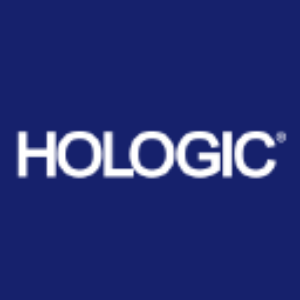Women';s Health Remains in Crisis Worldwide Even as COVID-19 Pandemic Wanes
Third annual Hologic Global Women’s Health Index shows billions of women untested for life-threatening conditions, emotional health worsening and nearly 1 billion women living with physical pain.
Women’s health innovation company Hologic, Inc. (Nasdaq: HOLX) partners with Gallup to create the Index, which in its third year shows that billions of women are not getting tested for potentially life-threatening conditions. The Index also shows that more women are sad, angry and worried now than at the height of the pandemic. Many young women don’t feel safe walking alone in their communities at night, and nearly 1 billion women spend a lot of their day in physical pain.
This year’s Index will be released today at the World Economic Forum in
The Index fills a critical gap in knowledge about the health, safety and well-being of women worldwide. Based on interviews with more than 147,000 women and men in 143 countries and territories, it represents the voices of
“The new Index findings make it exceedingly evident that, as countries emerge from the COVID-19 pandemic, women’s health remains in a state of emergency,” said Stephen P. MacMillan, Chairman, President and CEO of Hologic. “It’s time for world leaders to take a bolder stand for women and girls. Investing in women’s health not only benefits individual women, but also their families, communities and economies.”
Key findings from this year’s Index:
-
Testing for major health conditions remains low. Most women didn’t receive key tests in the past 12 months, meaning that billions of women went untested for potentially life-threatening conditions:
-
Only
36% were tested for high blood pressure — a major risk factor for heart disease and stroke. -
19% were tested for diabetes, a leading cause of death for women. -
11% were tested for any type of cancer. -
10% were tested for a sexually transmitted disease or infection (STD/STI) — leaving nearly 2 billion women of reproductive age at risk of infertility, increased maternal and fetal mortality, and deadly diseases.
-
Only
-
Emotional health is worsening: More women say they are sad, angry and worried now than three years ago. About 4 in 10 women experienced worry and stress during a lot of the previous day, and women are more likely than men to report feeling these emotions. For example, women are
20% more likely than men to say they experience sadness daily. -
Other striking findings:
- Physical pain is a significant problem. Nearly 1 billion women worldwide spent a lot of the previous day in physical pain.
- Housing challenges continue. The percentage of women struggling to afford shelter has increased by more than half in the last decade.
- Young women don’t feel safe. Many women, including more than 4 in 10 young women aged 15 to 24, do not feel safe walking alone at night.
Based on survey responses, the Index assigns a women’s health score to each country or territory.
“The Index serves as a wake-up call that improving women’s health needs to be a top priority. If we follow the roadmap set out in this Index, we can meaningfully improve the health and well-being of women for generations to come,” said MacMillan.
This year’s Index report includes country spotlights, including case studies on what is working well.
To see the full Index and related resources, visit WomensHealthIndex.com.
About Hologic, Inc.
Hologic, Inc. is a global medical technology innovator focused on improving the health and well-being of women, their families and communities through early detection and treatment. Its advancements include invention of the world’s first commercial 3D mammography system to find breast cancer earlier; leadership in testing for cervical cancer, sexually transmitted infections and respiratory illnesses; and minimally invasive surgical technologies for uterine fibroids and abnormal uterine bleeding.
About Gallup
Gallup delivers analytics and advice to help leaders and organizations solve their most pressing problems. Combining more than 80 years of experience with its global reach, Gallup knows more about the attitudes and behaviors of employees, customers, students and citizens than any other organization in the world.
SOURCE: Hologic, Inc.
View source version on businesswire.com: https://www.businesswire.com/news/home/20240116169105/en/
Media Contact
Bridget Perry
Director, Corporate Communications
(+1) 508.263.8654
bridget.perry@hologic.com
Investor Contact
Ryan Simon
Vice President, Investor Relations
(+1) 858.410.8514
ryan.simon@hologic.com
Source: Hologic, Inc.







